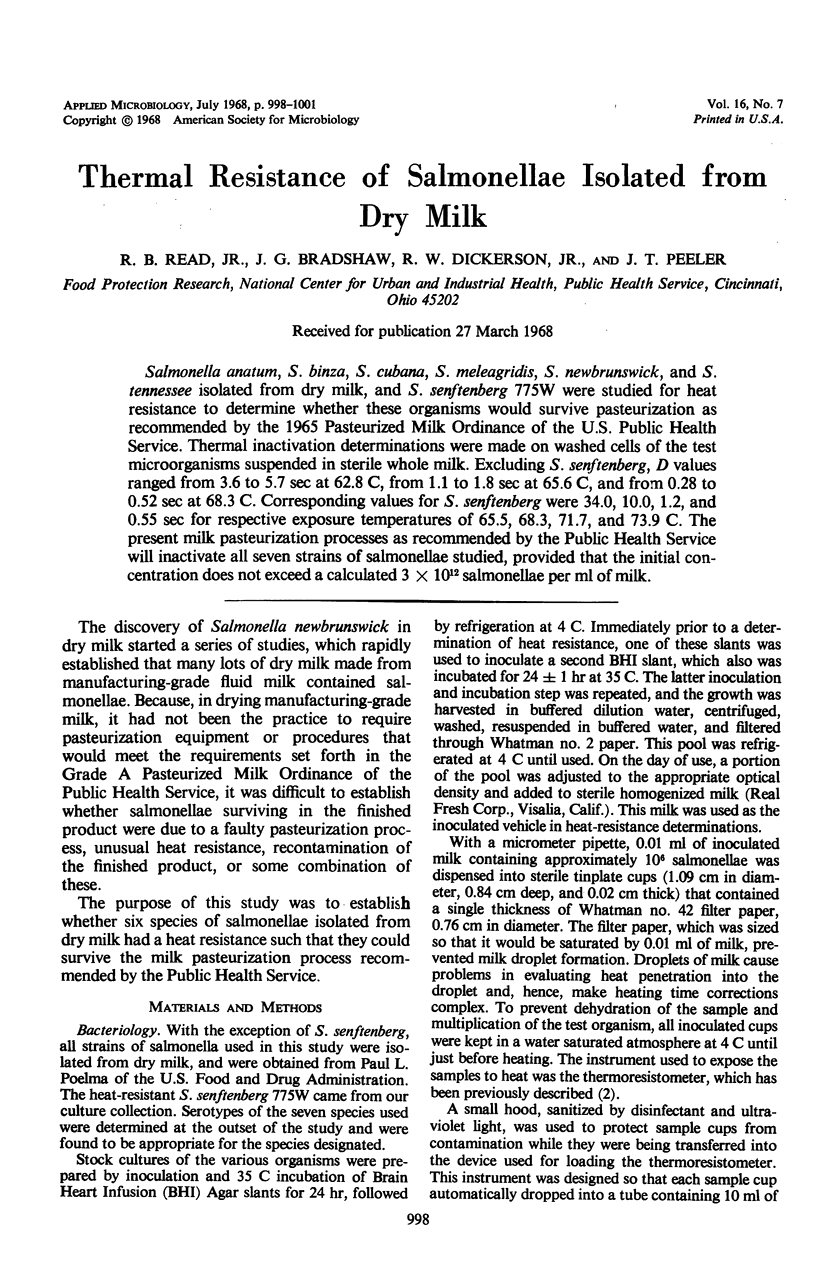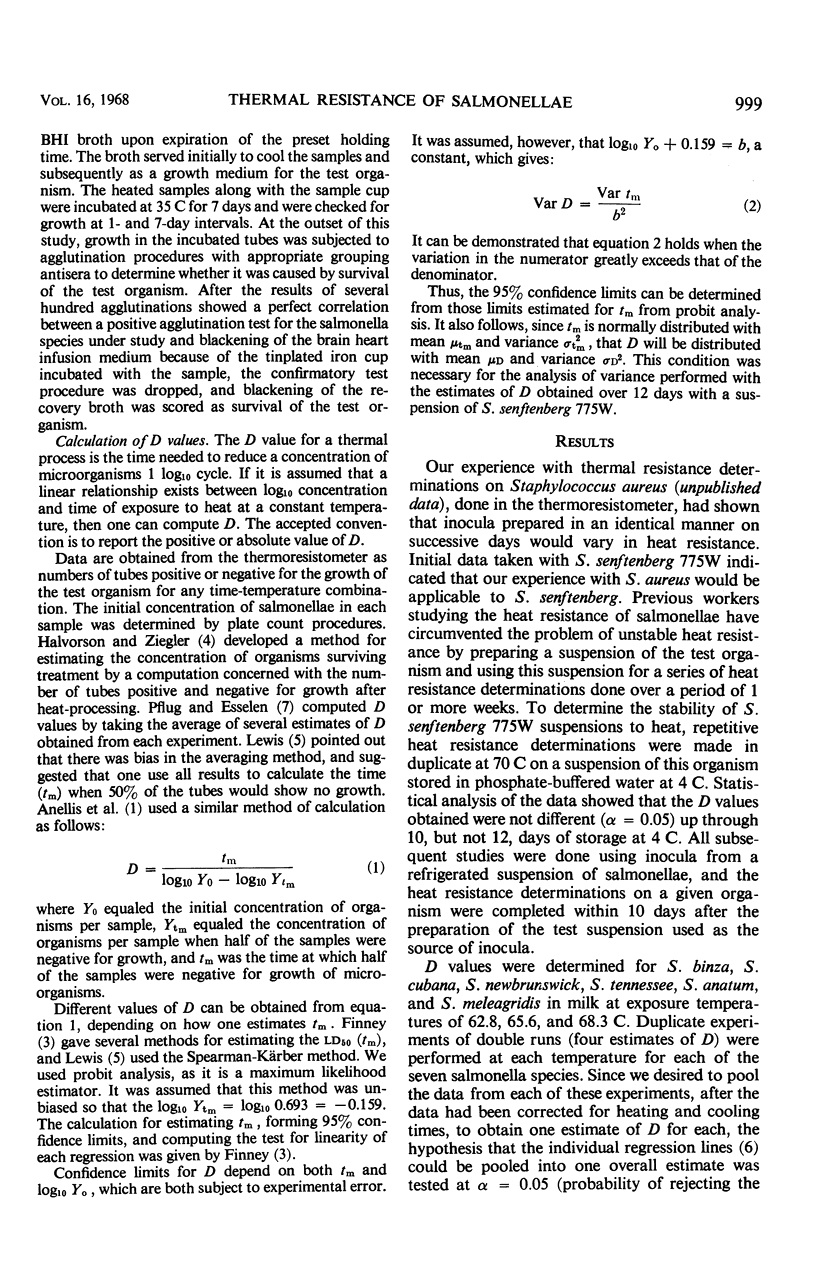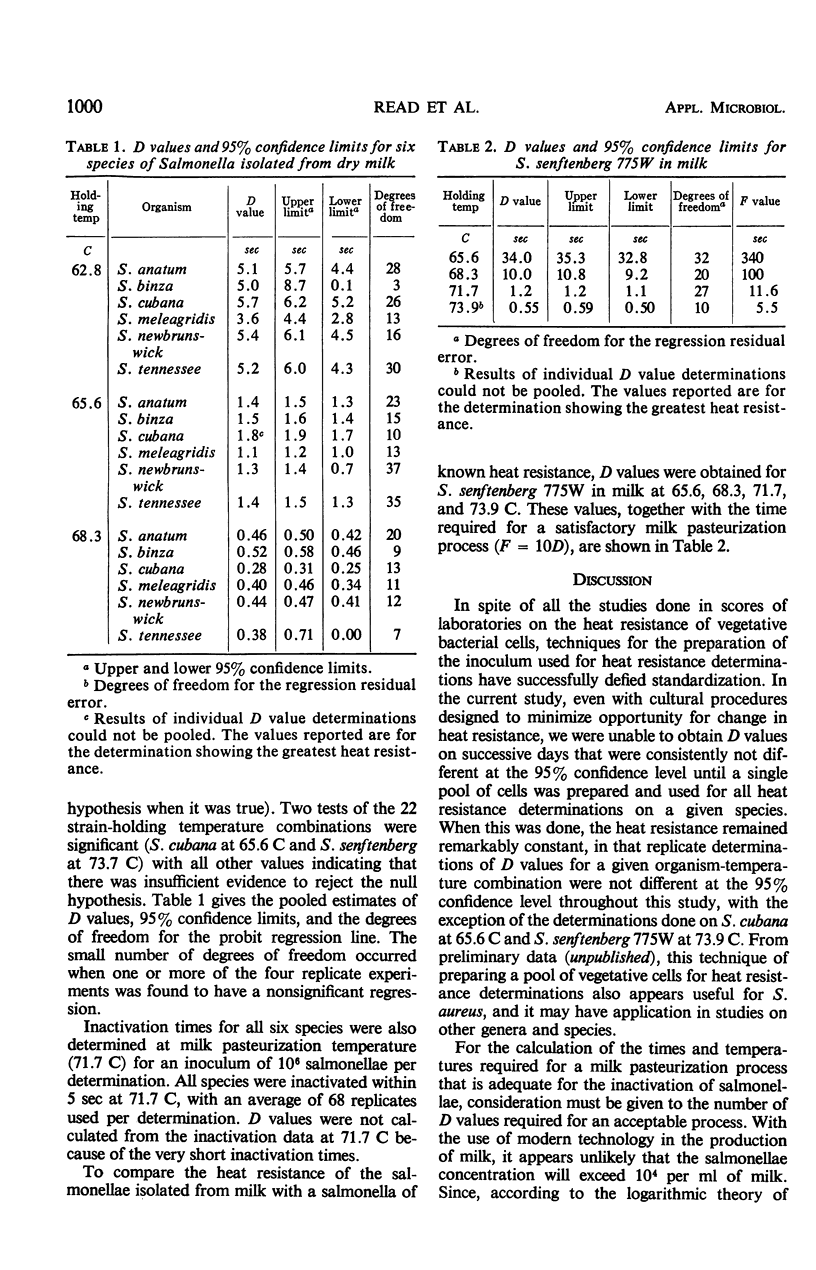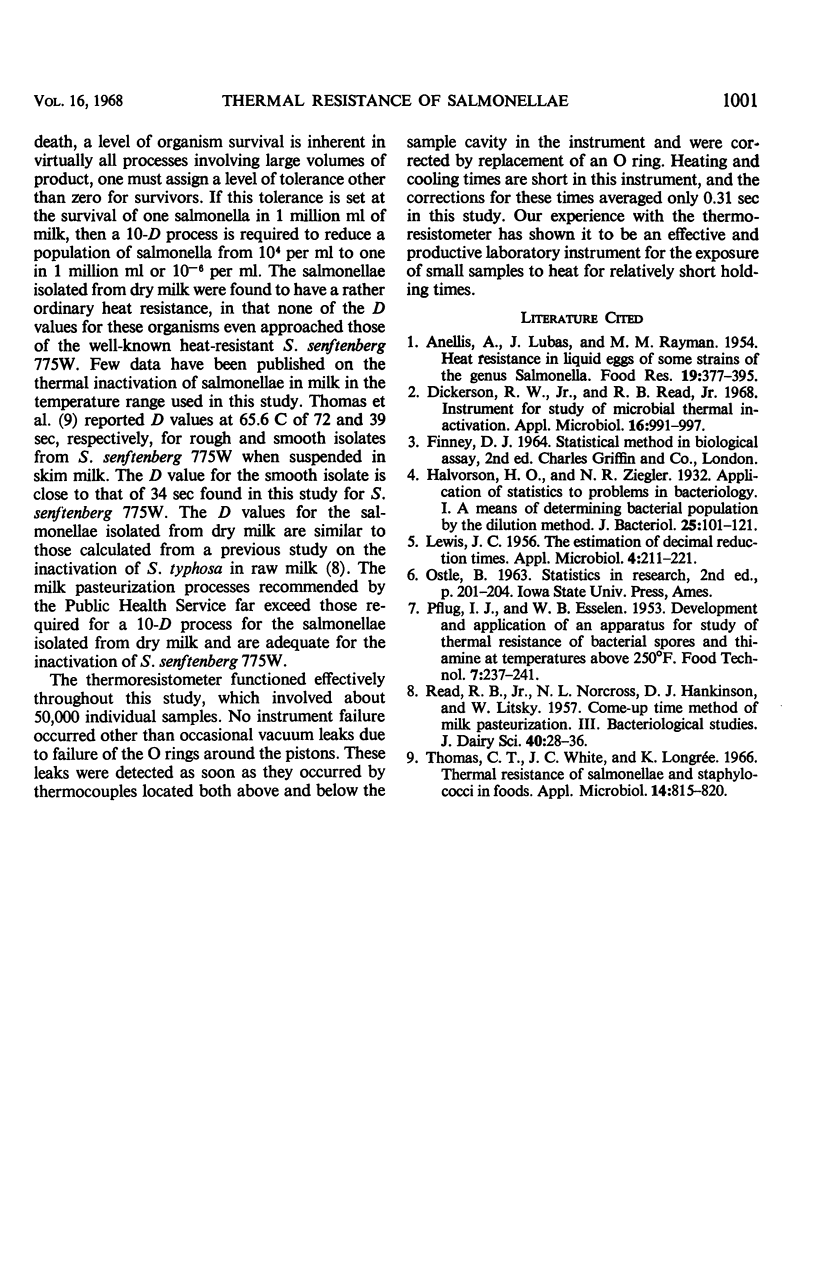Abstract
Salmonella anatum, S. binza, S. cubana, S. meleagridis, S. newbrunswick, and S. tennessee isolated from dry milk, and S. senftenberg 775W were studied for heat resistance to determine whether these organisms would survive pasteurization as recommended by the 1965 Pasteurized Milk Ordinance of the U.S. Public Health Service. Thermal inactivation determinations were made on washed cells of the test microorganisms suspended in sterile whole milk. Excluding S. senftenberg, D values ranged from 3.6 to 5.7 sec at 62.8 C, from 1.1 to 1.8 sec at 65.6 C, and from 0.28 to 0.52 sec at 68.3 C. Corresponding values for S. senftenberg were 34.0, 10.0, 1.2, and 0.55 sec for respective exposure temperatures of 65.5, 68.3, 71.7, and 73.9 C. The present milk pasteurization processes as recommended by the Public Health Service will inactivate all seven strains of salmonellae studied, provided that the initial concentration does not exceed a calculated 3 × 1012 salmonellae per ml of milk.
Full text
PDF



Selected References
These references are in PubMed. This may not be the complete list of references from this article.
- Dickerson R. W., Jr, Read R. B., Jr Instrument for study of microbial thermal inactivation. Appl Microbiol. 1968 Jul;16(7):991–997. doi: 10.1128/am.16.7.991-997.1968. [DOI] [PMC free article] [PubMed] [Google Scholar]
- Halvorson H. O., Ziegler N. R. Application of Statistics to Problems in Bacteriology: I. A Means of Determining Bacterial Population by the Dilution Method. J Bacteriol. 1933 Feb;25(2):101–121. doi: 10.1128/jb.25.2.101-121.1933. [DOI] [PMC free article] [PubMed] [Google Scholar]
- LEWIS J. C. The estimation of decimal reduction times. Appl Microbiol. 1956 Jul;4(4):211–221. doi: 10.1128/am.4.4.211-221.1956. [DOI] [PMC free article] [PubMed] [Google Scholar]
- Thomas C. T., White J. C., Longrée K. Thermal resistance of salmonellae and staphylococci in foods. Appl Microbiol. 1966 Sep;14(5):815–820. doi: 10.1128/am.14.5.815-820.1966. [DOI] [PMC free article] [PubMed] [Google Scholar]


